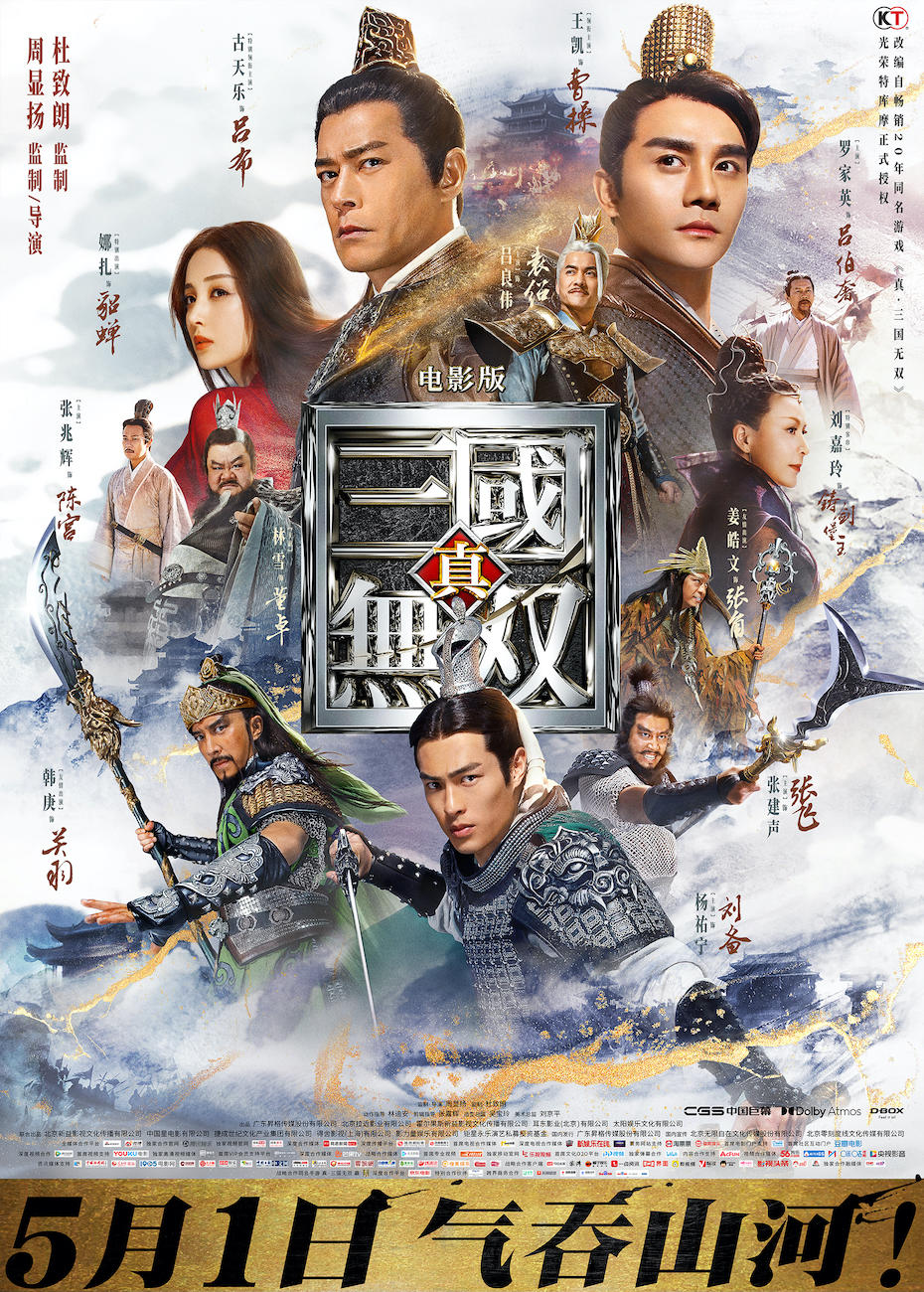DYNASTY WARRIORS (真.三国无双) (NETFLIX) (2021)
SYNOPSIS: Based on Koei Tecmo's namesake game. The Yellow Turban Rebellion breaks out in the late Eastern Han Dynasty. With the help of his trusted right-hand men Guan Yu and Zhang Fei, militia leader Liu Pei successfully suppresses the revolt. The calculating warlord Dong Zhuo takes advantage of the situation and takes control of the court, stirring further unrest.
MOVIE REVIEW:
We’ll be honest: the only thing that kept us going was our curiosity of how bad this video game-to-film adaptation could be. Lest you think this be some respectable movie about the ‘Three Kingdoms’, you should know from the get-go that it is instead an adaptation of the single-player tactical role-playing games which allowed players to assume one of the notable characters in the ‘Three Kingdoms’ mythology and make use of the character’s magical destiny weapon to kill off countless numbers of his enemies.
Probably assuming that they could build a franchise from the games, director Roy Chow and his screenwriter wife Christine To have chosen to bookend their film with the Yellow Turban rebellion and the siege of Hu Lao Gate (for the uninitiated, these two battles are at the start of the game, as well as the prologue to the story of the Three Kingdoms novel). Between those battles is some utterly clumsy storytelling of the tyranny of General Dong Zhuo (Lam Suet), the rise of Cao Cao (Wang Kai), the alliance between Cao Cao and three travelling warriors named Liu Bei (Tony Yang), Guan Yu (Han Geng) and Zhang Fei (Justin Cheung), and their showdown with the indomitable Lu Bu (Louis Koo).
Frankly, those without prior knowledge of the story or these characters will be utterly lost and frustrated: not only does Chow fail to give the characters any meaningful backstory, his plotting goes off in all sort of random and unresolved directions, including how Lu Bu falls in love with Dong Zhuo’s soon-to-be wife Diao Chan (Nezha Coulee), how Cao Cao accidentally murders the whole family of a loyal friend Lu Boshe (Law Kar-ying) but just simply gets away scot-free, and how Liu Bei, Guan Yu and Zhang Fei come to realise the power within the weapons forged by the Master of the Sword Forge Castle (Carina Lau).
It is a hot mess all right, devoid of logic or coherence. We cannot say we are surprised though; this is the same couple who was behind one of our most-hated Hong Kong films of all time, the Aaron Kwok murder thriller turned unintentional comedy “Murderer”. What is truly surprising is how Chow has managed to assemble such an ensemble cast, which besides the aforementioned, includes Eddie Cheung, Ray Lui and Philip Keung in notable supporting roles. Not that these actors could have saved the movie though; indeed, we wonder if the draw for them was being able to participate in the HK$300 million production which went all the way to New Zealand for some admittedly spectacular location shooting.
Much time is also devoted to the action set-pieces credited to veteran choreographer Dion Lam; yet, though Lam does a credible job directing these sequences, they are ultimately let down by sub-par special effects which look puzzlingly like they were done by a 12-year-old in his home basement. Amidst other Mainland Chinese period fantasies with similarly lavish effects, you’d be wondering if Chow had demanded his money back from whichever studio was responsible for the laughable CGI; and no, just to be sure, even the fact that they are designed to look video game-like does not take away how cheap and fake they look.
Is curiosity good enough motivation to sit through two hours of this atrocious movie? Not really. Consider therefore the fact that we have done so a favour to everyone else to stay away from this muddle that is neither a respectable Three Kingdoms movie or a thrilling adaptation of the video game. Like we said, it is clear Chow had franchise ambitions in mind, but seeing how this first chapter has turned out, we’d say this is probably the end, than the start of, the story of the Three Kingdoms as far as this retelling is concerned. And truthfully, we’re all better off not having to waste any more time on such drivel.
MOVIE RATING:

Review by Gabriel Chong

